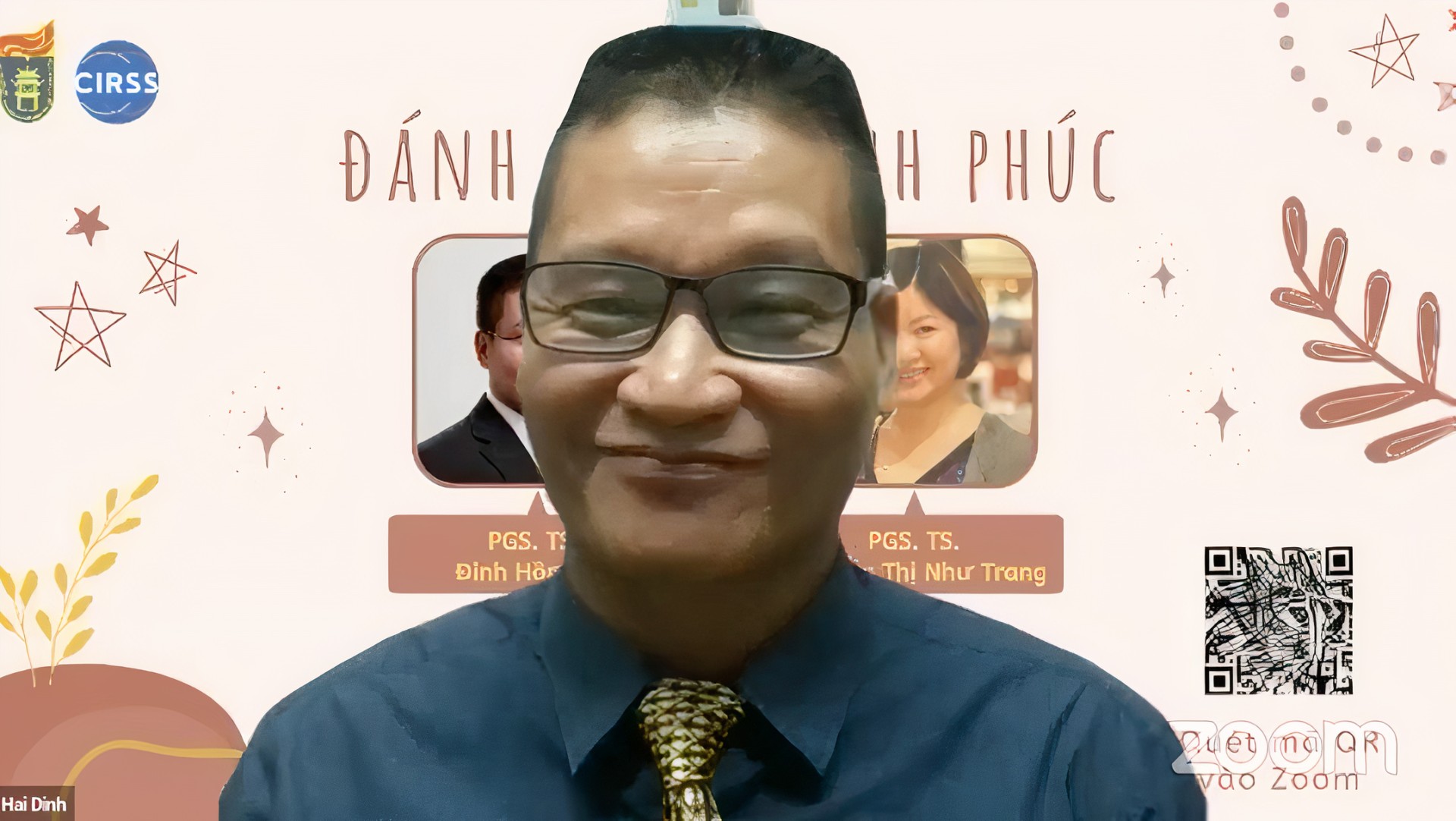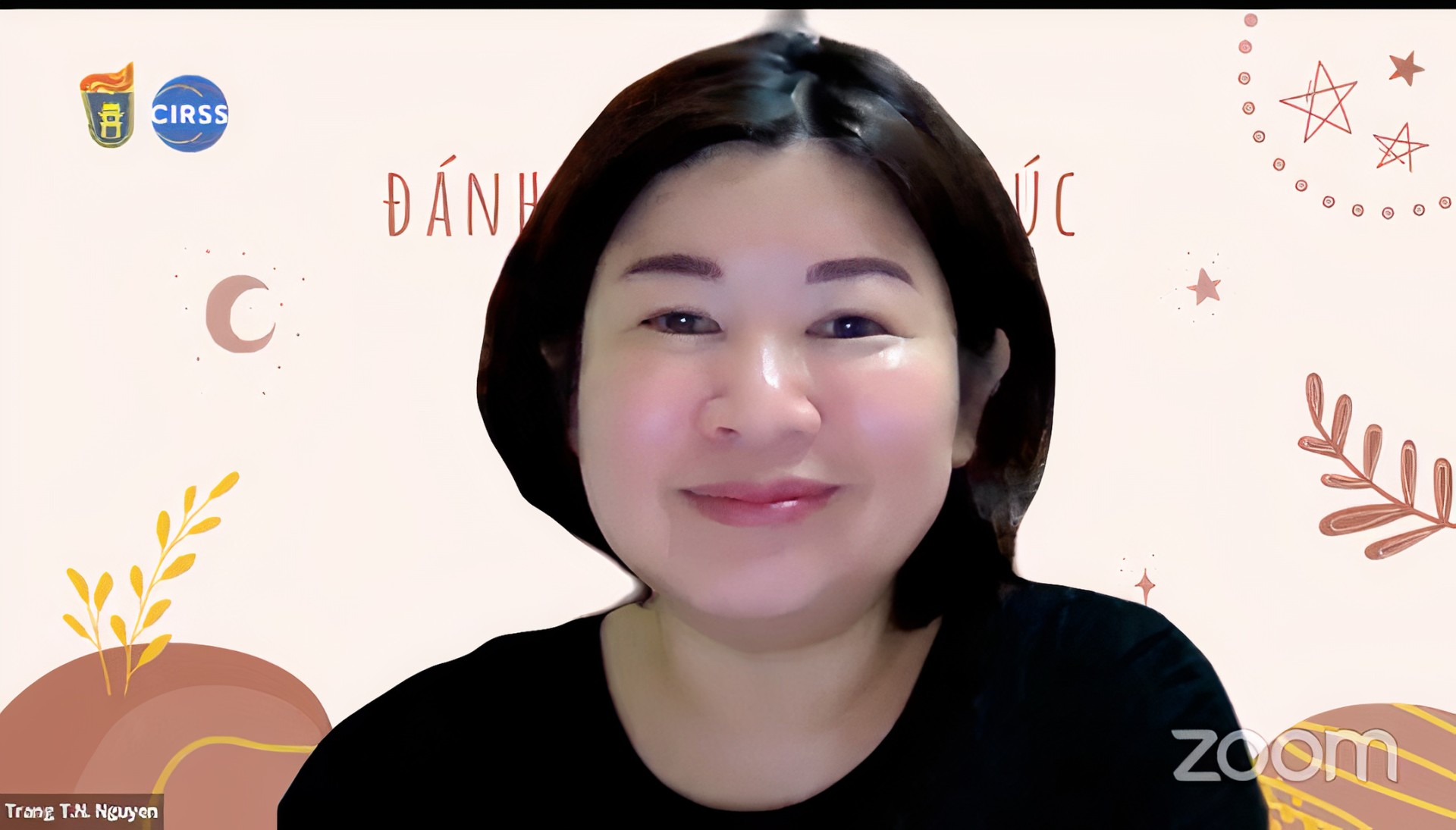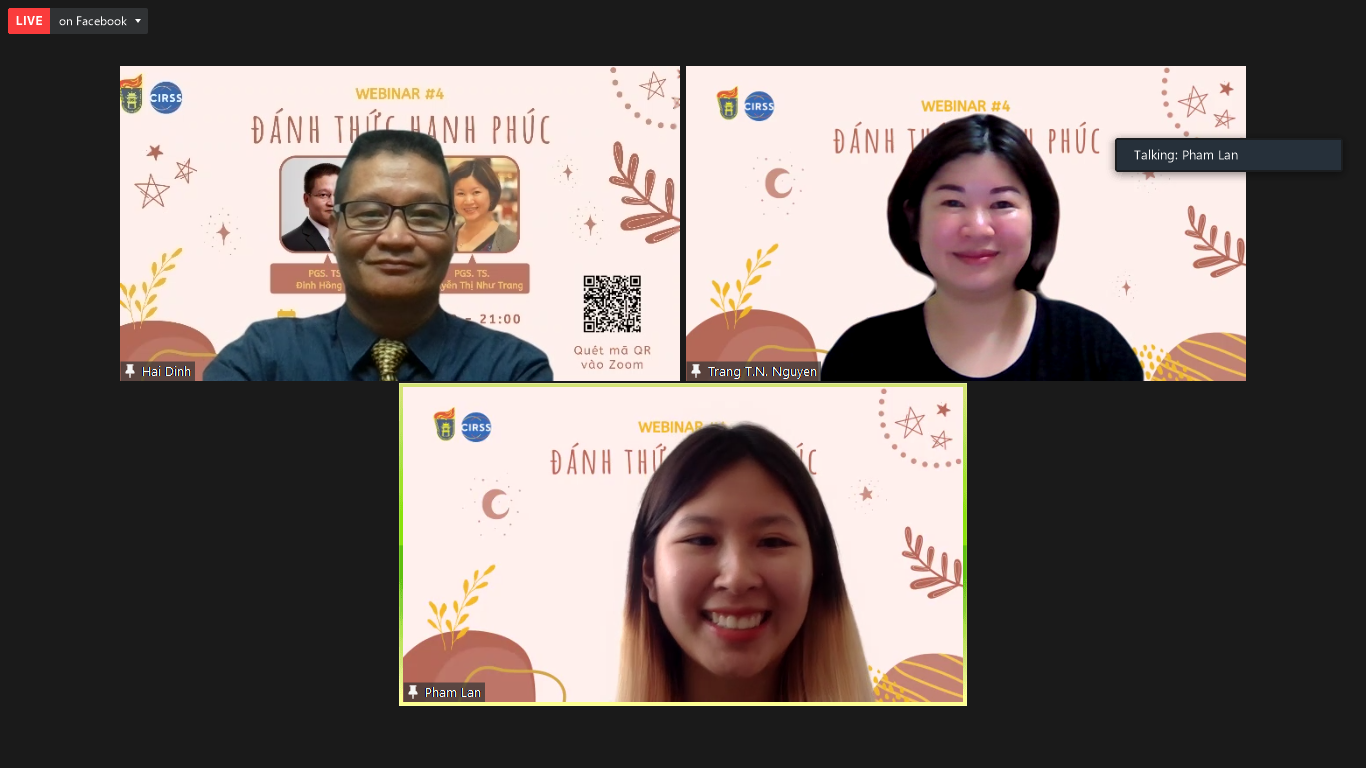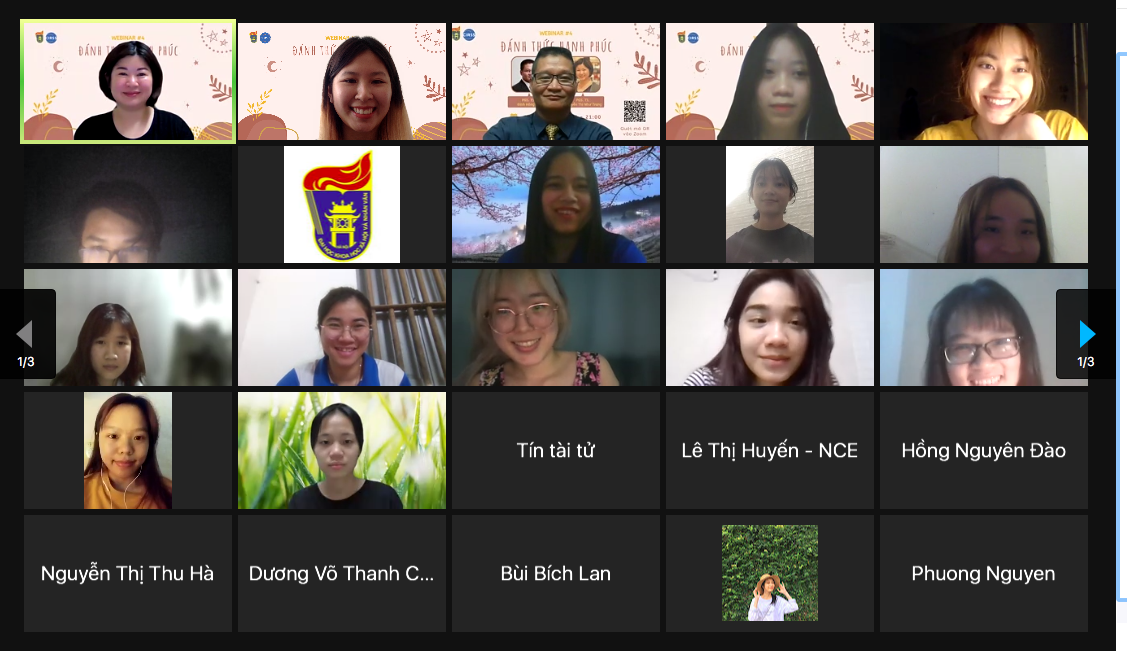Attending Webinar #4: "Awakening Happiness", Associate Professor Dr. Dinh Hong Hai - Lecturer of the Faculty of Anthropology Associate Professor Dr. Nguyen Thi Nhu Trang - Lecturer of the Faculty of Sociology (University of Social Sciences and Humanities) discussed and shared views on happiness from a scientific perspective in a very close and easy-to-understand way, while answering the concerns and worries of the attendees about how to feel happy for themselves and those around them.


Two speakers of Webinar #4: Associate Professor, Dr. Dinh Hong Hai and Associate Professor, Dr. Nguyen Thi Nhu Trang
What is happiness?
This is a question that many young people sent to the two speakers. To answer this question, Associate Professor, Dr. Dinh Hong Hai talked about happiness from the perspective of Anthropology in each period and classified it into individual, family and national/human levels. In particular, Mr. Hai shared the difference in the perspective of happiness in Eastern culture compared to Western culture. That is, to feel happiness, we must first understand what suffering is - only when we understand suffering, can we feel the happiness of ourselves, our family and the community.
Unlike Associate Professor Dr. Dinh Hong Hai, Associate Professor Dr. Nguyen Thi Nhu Trang presented about happiness according to the approach of empirical sociology. She shared that happiness is a subjective feeling about oneself and life. We are happy when we feel satisfied and content with ourselves and the life we have. Happiness is made up of three factors: cognition, emotion and biology (genes). The speaker emphasized that although genetics cannot be changed, we can be completely happy when we know how to manage emotions and adjust our perception in a positive direction.
So how to be happy?
From the perspective of Anthropology, Associate Professor Dr. Dinh Hong Hai pointed out that to be happy, we need to be free from suffering. According to Buddhism, if we have good karma, we will have a happy life in this life or the next. To have good karma, we need to understand the Dharma. When we understand it, we will find the path to liberation and happiness for ourselves. As for the perspective of Western culture, Associate Professor Dr. Dinh Hong Hai explains happiness based on Maslow's hierarchy of needs, from the most basic needs at the bottom to the need for self-expression at the top. When the needs below are met, the individual will have the desire to express themselves and contribute to society. This means that when a person is physically, emotionally, and respectfully fulfilled, they will have the desire to express themselves and then feel happy.
Returning to the question “How to be happy?”, Associate Professor Dr. Dinh Hong Hai concluded that: Happiness is created by ourselves without having to search far away. He cited evidence from the book “The Happiness Code” by Sonja Lyubomirsky - an American positive psychologist, which pointed out that: 50% of happiness is natural (genes, family, country ...), 10% due to living conditions, and 40% due to ourselves. That means that we can completely control and change ourselves to be happy.
Agreeing with Mr. Hai, Associate Professor Dr. Nguyen Thi Nhu Trang pointed out four important factors to achieve happiness.
1. Adjust your thinking:
2. Building meaning in life:We need to review our values, interests and determine what we want to pursue. When we pursue what we value and what suits us, we will feel happier, even if we do not achieve it, but the process of pursuing what we love and value brings happiness. However, we also need to be careful that sometimes it is not easy to determine what we want and what suits us, sometimes it is difficult to determine what is really important and suitable for us, what is what society values and propagates to us, causing us to misunderstand that it is what we want.
3. Heal the wounds:If the wounds from the past are not healed, it can greatly affect the way we feel about life in the present. At this time, we should see a professional to heal the wounds within us, and then we can easily open our hearts to feel happiness.
4. Strengthening contributing factors,namely: financial stability, social relationships, social status (prestige, influence), family, physical health, moral values, positive experiences.
Through Webinar #4, the Anthropology and Sociology knowledge of Associate Professor Dr. Dinh Hong Hai and Associate Professor Dr. Nguyen Thi Nhu Trang has helped participants better understand happiness. From there, each person can find a solution to awaken happiness within themselves.


Receiving support beyond expectations, CIRSS promises to continue planning to implement the next Webinars with extremely attractive topics and bring a lot of value to the community.
-------------------------------------
* Center for Interdisciplinary Research in Social Sciences *
Center for Interdisciplinary Research in Social Sciences (CIRSS), under the University of Social Sciences and Humanities - VNU
E-mail:[email protected]
Address: Room 701, Building M - Lane 336 Nguyen Trai - Thanh Xuan - Hanoi
Author:Ngoc Lan
Newer news
Older news